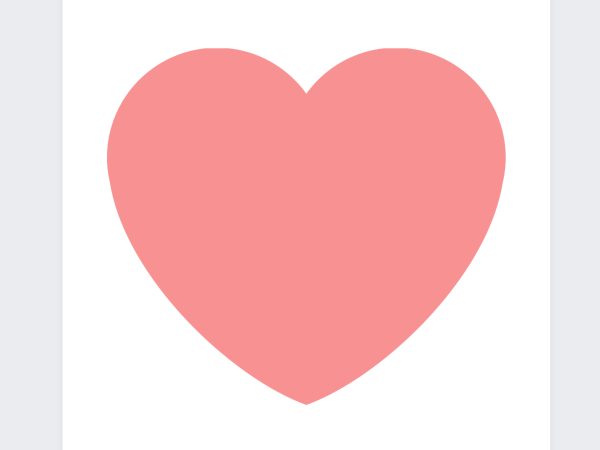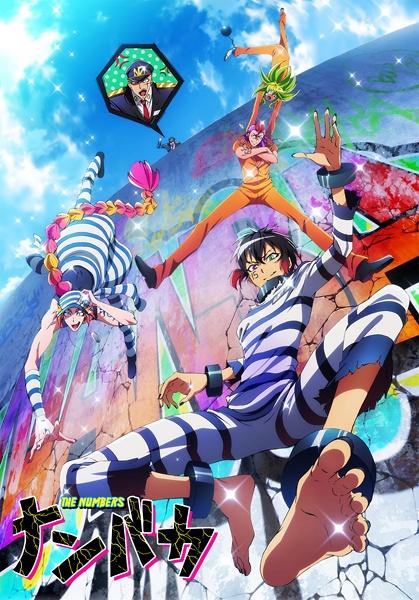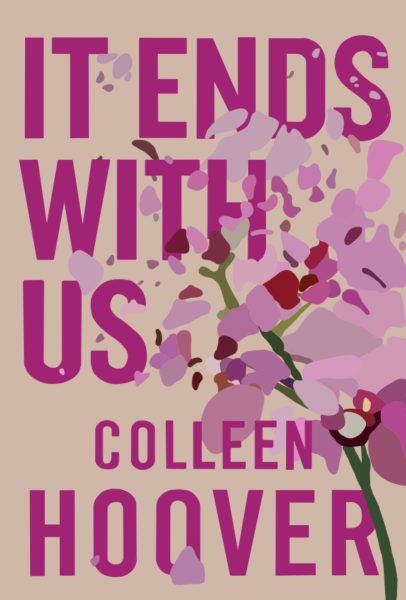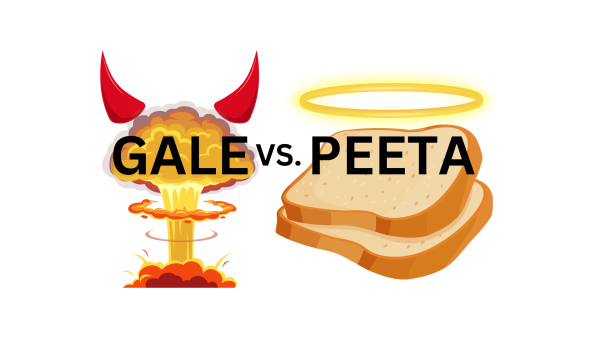Nanbaka: a colorful explosion
When someone hears the word “prison” they expect a bleak place with gray walls and orange jumpsuits. This thought process is broken through with the first sight of Nanba prison. Everything about this prison, from the people to the walls, shines with color and literally sparkles.
The anime Nanbaka starts as a lighthearted comedy. The prisoners breaking out for fun and challenging their supervisors to ridiculous battles such as rock-paper-scissors. After they avoid poison and rolling boulders, all four of the inmates stand around laughing since they escaped death. This happy atmosphere with light jokes placed throughout the episodes can, at first glance, make someone assume it will be entirely for laughs and good feelings when they watch it. With the vibrant colors of the characters and surroundings, it is easy to forget all of the underlying darkness surrounding the anime. It is easy to forget that the main characters are in prison, and they are in prison for a reason. The group of friends talk about their past like it’s no big deal, and yet each of them struggled through life.
The main character is Jyugo, a man whose only skills are picking locks and breaking out of prison. He is loved by his roommates, all of which have odd abilities that seem useless in most situations. They have complete faith in each other and often cause more trouble than was needed, yet still manage to be safe after each mishap. At one point in the first episode they jump out a trash shoot to avoid a rolling boulder, only to nearly hit a high voltage electrical fence. One of his friends with highly advanced intuition managed to warn the group before everyone fell to their ultimate demise.
At the end of the first couple of episodes, the creators throw bits of Jyugo’s depressing past in brief mention. I found this to be an odd technique to use since it canceled out the previously happy atmospheres instead of having it at a more appropriate time. The short scenes didn’t make me curious about future episodes, and the sudden switch from a joyful conversation to a terrible past almost managed to kill the vibe. This wasn’t a good idea if the creators were wanting to draw in viewers, but it might have helped to steer away people who wouldn’t be ready for the future gore-fest at begins after episode six.
These clips at the end manage to draw attention to Jyugo’s appearance. Resting around his neck, arms and legs are thick, black shackles that no one is able to remove. We have no explanation about these other than someone that he didn’t know had placed them on him years ago. Other eye-catching parts of his appearance are his hair — thin red strands close to his ears — his eyes — one green and one magenta — his bare feet and the striped black and white prison uniform.
Out of Jyugo’s three friends and cellmates, I find Nico to be the most entertaining. He acts childish most of the time: constantly smiling and talking about comics and video games, and he doesn’t like to fight. With this said, it has been made clear that Nico’s life is less than desirable. Half of his head is constantly wrapped in bandages, letting only one of his blood red eyes show through. We are told a small amount of his past, about how he was a drug mule when he lived in the slums, and how he constantly needs medicine for a reason undisclosed to viewers. It isn’t until the second season where viewers learn more about him and his abilities.
That doesn’t mean the other characters in Nanbaka are being left out. Everyone’s personalities and their roles in the anime differ from many of the stereotypes, where the main character is either the best at everything or the worst at everything. The creators payed attention to everyone’s background, be it an inmate, a guard, or a visitor. Everyone was assigned a story and a personality that can both conflict and compliment the main character. There was a very feel good atmosphere around most of the character’s relationships and, even if they started out violent or cautious, that soon changed into a beneficial meeting for all the characters involved.
All of the inmates make friends with their supervisors during their time in prison. This is an anime where the guards and the prisoners are on equal footing when it comes to screen time and character planning, which creates the question of who the antagonist is. We are given hints during the first few episodes – flashes of people and darkness and a man with a scar on his neck – about the person whom Jyugo can not forgive. The man he blames for placing the unbreakable shackles upon him.
For the entirety of the first season there is little in the way of plot development, and it seems as though the entire season is an introductory arc to all of the characters. With over ten characters that could be thought of as ‘main characters’ it is not surprising that they took so long before waiting reach the true darkness behind Nanbaka’s comedic veil. For people who are not able to handle an intangible plot, it might be difficult to get past the first season, but I feel it is worth the effort.
From what we can tell, Jyugo is going from one prison to another, searching for this man who has ruined his life. At one point he says that Nanba Prison is the last place in the world that he hasn’t checked, and that he doesn’t know what to do if the man isn’t in this prison. He continues trying to escape from Nanba Prison in order to increase his sentence and give him more time to search for that man.
When it comes to gore, this anime is not lacking. While there hasn’t been any known death as of yet, fighting to the point of a bloody knockout is not abnormal. One of the guards is fairly violent (though not excessively). When he is tired of inmates causing trouble he klocks them in the head and leaves them lying on the ground. He is still responsible and doesn’t cause too much bodily harm to the inmates, and they are still friendly with him afterwards. The first showing of a true fight is during the prison’s New Year celebration (episode four), where inmates face inmates and guards face guards.
Most of the damage done to people is shown after the fact of receiving injuries instead of showing the viewers what, exactly, happened to give the characters such extensive wounds. Unless that scene is though of as an important part, such as the reveal of memories or someone’s true mental state, the actual violence may be glossed over.
The music and video at the opening and closings are wonderful. They were created for the anime in particular, using upbeat music to joke about how easy life in prison can be if you know how to avoid guards and escaping handcuffs. The opening song “Rin! Rin! Hi! Hi!” is about a wild party and adventure; running and loneliness. It talks about living for today because tomorrow might not be as nice. The closing song “Auto Uemura” jokes around about escaping from prison, and how they just have to because it’s so easy. The video shows the chibi versions of the characters running around obstacle courses and playing in space. The music is energetic with each of the main characters singing a part of the lyrics. Part of the background music reminds me of a video game, which is how the video looks as the characters run across the screen.
The jokes have managed to make me laugh out loud on more than one occasion. Many of them have been well planned out and still appeal to audiences who listen in a disconnected language. Since all of these jokes have been created in Japan for a primarily Japanese audience, thinking of jokes that appeal to a different culture at the same time is incredibly difficult. Only in episode 13 did I find the jokes to be stressed, but that seemed to be purposeful on the creator’s behalf. Episode 13 was the end of season one, leading into the more intense and less comical second season. The narrator was stressing that this anime was comedy, no matter what was going to happen in the future or what mental torture the characters would go through.
I give this anime a 9/10. It doesn’t yet have a ‘wow factor’ in the plot that is able to boost it up, but this is definitely one of my favorite anime.

Shabana is going on her second year with newspaper. The majority of her time is consumed by fantasy, which is why she's constantly covered in paint and...












